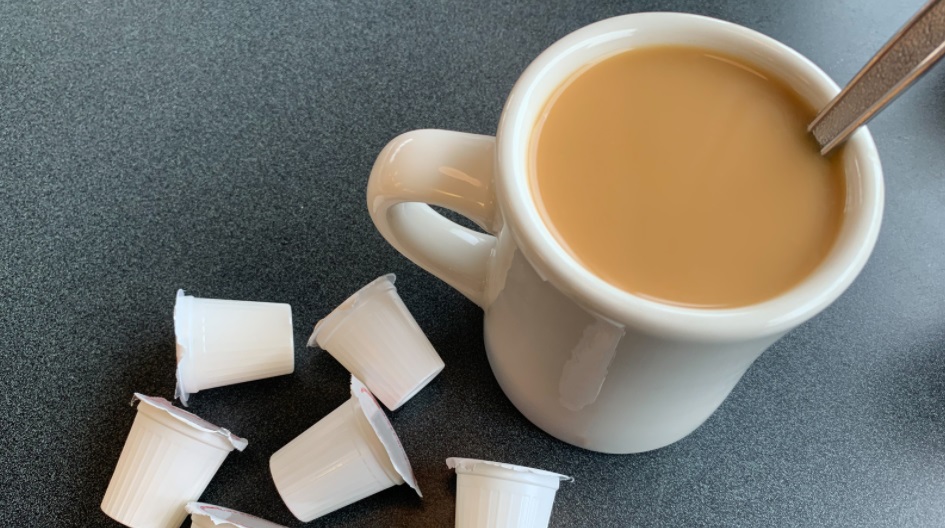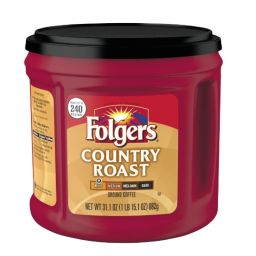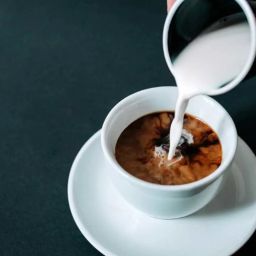
When you mix coffee with milk and pop it into the fridge, how long does it stay fresh? The typical shelf life is about 1-3 days for optimal freshness and taste. This range can depend heavily on several key factors including how the coffee and milk are stored and the type of milk used. Whether you’re sipping on a homemade latte or a simple milk coffee blend, knowing how to store it correctly can make all the difference in maintaining its delicious taste.
Key Takeaways about How Long Does Coffee With Milk Last In The Fridge
- Understanding the Basics: It’s crucial to know that coffee with milk shouldn’t sit in the fridge for more than a few days. After this period, the quality and safety of the drink can start to decline.
- Storage Conditions Matter: How you store your coffee with milk can greatly affect its freshness. Keeping it in an airtight container in a cool part of the fridge can extend its life.
- Type of Milk: Different types of milk have different shelf lives. Pasteurized milk, for example, tends to spoil faster than ultra-heat treated (UHT) milk.
- Preventive Measures: To keep your coffee tasting fresh, ensure it cools down before refrigerating. This prevents temperature fluctuations that could impact other food items and the overall environment of your fridge.
- Freshness Tips: Adding milk to your coffee just before you drink it, rather than before storing, can help maintain the best flavor.
Understanding the Variables
The longevity of coffee with milk in the fridge can be influenced by various factors. Let’s break these down:
The type of milk mixed with your coffee plays a significant role in how long your coffee will stay fresh. Pasteurized milk, which is most commonly used, typically has a shorter fridge life compared to UHT (Ultra Heat Treated) milk. UHT milk undergoes a high-temperature processing method that extends its shelf life, even after mixing with coffee.
The average fridge temperature should be kept at or below 40°F (4°C) to safely store perishable items like milk and milk-containing beverages. A fridge that’s not cold enough can accelerate spoilage. Additionally, cleanliness is crucial; odors and residues in an unclean fridge can transfer to your coffee, affecting its taste and freshness.
Whether your coffee is covered or exposed in the fridge also impacts its shelf life. Coffee stored in a covered, airtight container is less likely to absorb other flavors or odors from the fridge and is better protected from the growth of bacteria.
Best Storage Practices for Coffee with Milk
To ensure that your coffee with milk remains fresh and delicious while stored in the fridge, consider these tips:
Use Airtight Containers: This is perhaps the most effective way to store coffee. Airtight containers limit the exposure of the coffee to air, which can accelerate oxidation and flavor degradation.
Avoid Light and Strong Odors: Store your coffee in a part of the fridge where it’s not exposed to light, which can also degrade the quality over time. Similarly, keep it away from strongly-scented foods that could impart unwanted flavors to your coffee.
Cool Coffee Before Refrigeration: Hot coffee should be allowed to cool to room temperature before being placed in the fridge. Placing hot coffee in the fridge not only raises the appliance’s internal temperature but can also affect the texture and taste of the milk in the coffee.
Potential Risks and How to Mitigate Them
Storing coffee with milk in the fridge isn’t just about preserving its taste—it’s also about safety. Let’s explore the risks associated with this practice and how you can mitigate them effectively.
Bacterial Growth
- Understanding the Risk: Milk is a dairy product that can become a breeding ground for bacteria if not stored correctly. Once milk is combined with coffee and stored in the fridge, the risk doesn’t automatically disappear. The danger increases if the coffee with milk is left in the fridge beyond the recommended time.
- Signs of Spoilage: Keep an eye out for any off smells, a sour taste, or visible mold. These are clear indications that your coffee with milk should not be consumed.
Flavor Degradation
- What Happens?: Over time, even within the safe storage window, coffee can start to absorb flavors and odors from other foods stored in the fridge. Additionally, the coffee itself can begin to lose its freshness and aromatic qualities.
- Preventing Flavor Loss: To combat this, ensure your coffee is stored in an airtight container and placed in a part of the fridge less prone to temperature fluctuations like the back, rather than the door.
Preventive Measures
- Optimal Storage Practices: As mentioned earlier, always use an airtight container to store your coffee with milk. This not only protects against bacteria but also minimizes flavor absorption from other foods.
- Regular Cleaning: Keeping your fridge clean and odor-free is another crucial step. This helps in preventing your coffee from picking up unwanted flavors.
- Timely Consumption: The best way to avoid any risks is to consume the coffee with milk within 1-3 days after making it. This minimizes the chances of bacterial growth and ensures you’re enjoying your coffee at its best.
FAQs
How does the shelf life of coffee with milk compare to black coffee?
Black coffee can last longer in the fridge, typically up to a week without significant taste degradation. However, when milk is added, the shelf life decreases to about 1-3 days. Milk can spoil or develop off-flavors more quickly than brewed coffee alone.
Is it safe to drink coffee with milk that has been refrigerated for over two days?
While it might still be safe, it’s not ideal. For the best taste and to avoid potential health risks, it’s recommended to consume coffee with milk within 1-3 days. After this period, check for any sour smell or taste before drinking, as these are signs of spoilage.
Final Thoughts
Storing coffee with milk in the fridge requires attention to detail to ensure both safety and flavor. Aim to consume within 1-3 days for optimal freshness. Use an airtight container and keep it in a stable, cool part of the fridge. Always smell and taste a small amount before drinking if it’s been stored for a couple of days.









